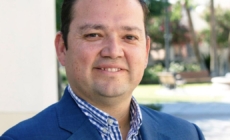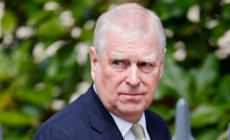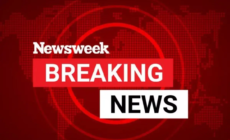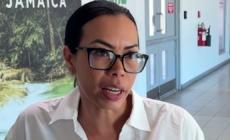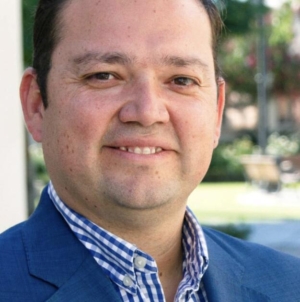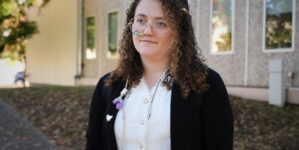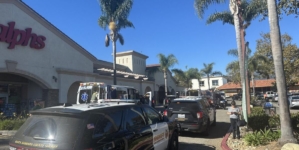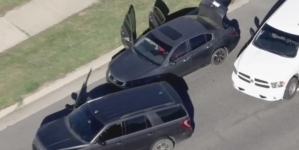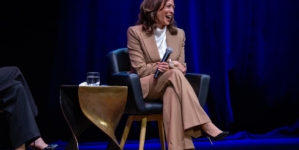-
Top 5 NFL Bets To Make Right Now | Week 9 - 15 mins ago
-
Coachella mayor indicted on charges of perjury, conflict of interest - 36 mins ago
-
BetMGM Bonus Code NW150: Claim $150 Bonus For Ravens-Dolphins, NBA Games - 37 mins ago
-
King Charles III removes Prince Andrew’s titles and honors formally - 44 mins ago
-
Tony Vitello Takes Daunting Step From College to MLB Dugout as Giants Manager - 60 mins ago
-
Recalled Pasta Sold at Walmart, Trader Joe’s Leading to More Reported Illnesses, Deaths - about 1 hour ago
-
Wife to government employee earns $5K in side hustles during shutdown - about 1 hour ago
-
Riley Green fan unexpectedly storms stage during live concert performance - about 1 hour ago
-
Jamaican resident still hasn’t heard from her brother since Hurricane Melissa hit - 2 hours ago
-
FOX Super 6 Contest: Geoff Schwartz’s College Football Week 10 Picks, Predictions - 2 hours ago
Contributor: California was an ‘earthly paradise’ for Jews. Is it still?
California, described by one observer in the late 19th century as “the Jews’ earthly paradise” for the economic and social promise it held, seems to have become newly hostile to Jewish people in recent years. More than any other place on Earth, Jews have shaped much of California’s progress, from Levi Strauss and the founders of the entertainment industry to numerous other leaders in culture, science, real estate and finance.
The current assault expresses itself in politics, in schools from elementaries to universities, on the streets, in literary circles and in anti-Zionist graffiti.
Erwin Chemerinsky, the dean of the UC Berkeley Law School (and my fellow contributing writer in the L.A. Times opinion section), expressed two years ago that “nothing has prepared me for the antisemitism I see on college campuses now.” The Louis D. Brandeis Center for Human Rights Under Law and Jewish Americans for Fairness have filed a lawsuit against Berkeley, alleging “longstanding, unchecked” antisemitism.
This is not just a local issue. California’s population of 1.2 million Jews is roughly three times the size of each of the three largest Jewish diaspora communities outside the U.S. — in France, England and Canada. Los Angeles itself is the world’s third-largest Jewish city. Demographer Ira Sheskin noted recently that unlike New York City, which has lost roughly half its Jewish population since 1950, California’s Jewish populace has continued to grow, albeit more slowly in recent years.
Despite their relative demographic vitality, many California Jews feel increasingly isolated. Even in Hollywood, the Writers Guild, long a bastion of fashionable progressivism, suddenly decided to be neutral rather than making a statement on the Israel-Hamas war. Some leading figures, like Maha Dakhil, co-head of motion pictures at CAA, accused Israel of “genocide,” and others now refuse to work with Israeli film companies. Two thousand actors signed a statement outlining Israel’s “war crimes” with no mention of Hamas’ atrocities.
The political fallout has been considerable, and may become more so. Most California Jews are Democrats, according to the Pat Brown Institute; 20-30% tilt to the GOP. But the anti-Israel caucus, both here and nationally, is almost entirely made up of Democratic progressives. In a show of power, these activists even succeeded in disrupting California’s 2023 state Democratic Party convention. Many are justifiably uncomfortable with the GOP, citing the influence of antisemitism from the likes of Tucker Carlson and Candace Owens, and some critics of Israel have found the Democratic Party too cozy with Jerusalem and its supporters, but generally the Republicans, including MAGA young people, are clearly more philosemitic than the Democrats.
At a local level, politics in many cities have sent a message to the Jews of California. Anti-Israel resolutions have passed in Oakland, Stanton, Burbank and Richmond, where the progressive-controlled City Council accused Israel of “ethnic cleansing” and “apartheid.” Oakland called for an immediate ceasefire without mentioning Hamas’ atrocities. Demonstrators there even suggested that Israel murdered its own people as a pretext to attack Gaza.
And California’s youth are being groomed to hate Israel with hostile curriculums, setting up a whole new generation of antisemitism in the future and in the meantime putting Jewish teachers at risk. San Francisco has experienced anti-Israel walkouts in 10 high schools, organized by an advocacy group with access to student addresses.
At the same time, the drive to “globalize the intifada” affects California’s Jewish community directly. It has forced at least one L.A. synagogue to relocate its services; others have been vandalized. The Brentwood home owned by the president of the American Israel Public Affairs Committee was attacked in 2023 with smoke bombs and red paint. More recently, two years after the bloody Hamas attack on Israel, supporters of Palestinians disrupted a commemoration at Pomona College, warning that “Zionism is a death cult that must be dealt with accordingly.”
These assaults make Jews more concerned about their safety and perhaps more likely to turn inward in their communities. Far less alluring under these circumstances is the Jewish notion of tikkun olam, or repairing the world. Although it is the driving force in many congregations, particularly Reform synagogues, in troubled times it can be eclipsed by concerns about safety.
This new environment favors the Orthodox, pioneers of a kind of “self-segregation,” notes writer Joseph Epstein in the Wall Street Journal. And because of their higher birth rates and the below-replacement birth rates among non-Orthodox American Jews, the Orthodox could triple their share of the U.S. Jewish population by 2060. This trend plays out in California’s Jewish communities such as L.A.’s Pico-Robertson — epicenter of California orthodoxy.
The resurgence of California Jewry matters more today, given that voters in the traditional center of Jewish life, New York, have been supporting a mayoral candidate who was at least at one time sympathetic to “globalizing the intifada.” Many suspect that the once well-connected Jewish community in New York will likely face indifference, if not open hostility, from City Hall if Zohran Mamdani is elected.
Fortunately, the sun has not yet set on California’s Jews. The Golden State can still remain our “paradise” — true to its past. But this will work only by learning how to protect ourselves and make the case to our gentile neighbors so that we can continue to contribute mightily to the future of our common home.
Joel Kotkin is a contributing writer to Opinion, the presidential fellow for urban futures at Chapman University and senior research fellow at the Civitas Institute at the University of Texas, Austin.
Source link

